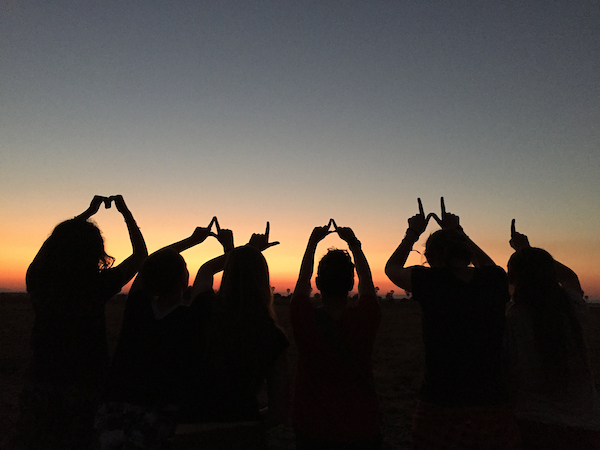IHP staff co-author piece on learning communities
November 15th, 2018 | Faculty, SIT Study Abroad

Readers of the fall 2018 issue of Global Impact Exchange, the publication of Diversity Abroad, will find in its pages a co-authored work by several SIT International Honors Program (IHP) staff. In “Humanizing High Impact Practices: Leveraging Learning Communities,” Joseph Lanning, program Director of IHP: Rethinking Food Security; Sherrilynn Colby-Bottel, program Director of IHP: Health and Community; Susan Sakash, program coordinator of IHP: Health and Community; and Zufan Hagos, IHP Program Manager, discuss how IHP programs’ unique structure helps students confront issues of inclusion, power, and oppression.
The authors say that enrolling underrepresented students in study abroad programs is not enough, in itself, to address these complex issues. IHP programs, which take groups of students to study one subject across four countries, foster close examination of how power, race, income, and other factors affect the programs’ subjects in other cultures as well as that of the US. That collaborative and open process enables underrepresented students and majority students to become part of a group of active learners who reflect upon experiences with each other and staff. Students can take these skills to other settings after their time with IHP.
... the transparency of our effort, the collaboration with all team members, the recognition of mistakes, and effort of creating space for myriad identities, values, and objectives defines our important work.
IHP is a pioneer in this kind of community-building, says co-author Joe Lanning. “The idea of a learning community isn’t unique to IHP, however the transparency of our effort, the collaboration with all team members, the recognition of mistakes, and effort of creating space for myriad identities, values, and objectives defines our important work.”
That work is aided by fellows and faculty who travel with students to all four countries, where they are also supported by local staff.
“The traveling fellow is something like a shepherd, looking after the well-being of the group,” says IHP Dean Katy de la Garza. “That’s physical, but also mental, with issues like culture shock, and the stress of moving through very different countries. If things are coming up in the group, they’re often about identity; stuff that comes up at their universities travels with students. The traveling fellow guides and mentors students to help make sense of things.”
Through regular discussion, these traveling faculty and fellows help students gain the skills they need to form a cohesive learning community. IHP programs’ structure reflects the effort via homestays, group excursions, and experiential learning outside classrooms. From the beginning, says de la Garza, the goal is “creating group values. We hold sessions to encourage students to ask themselves, ‘What’s important to me in traveling together?’ The goal is for everyone to be called in, not called out.”
It’s an effort IHP staff members at all levels feel strongly about; one they see as vital to intercultural learning. Lanning says, “While the process [of creating learning communities] is sometimes messy, our aim is to be transparent about our shared objectives and to revisit our co-created community values regularly so that students, faculty, and staff are seeing the benefits that come from clear communication.”
Be sure to check out this co-authored work in full at Diversity Abroad.
